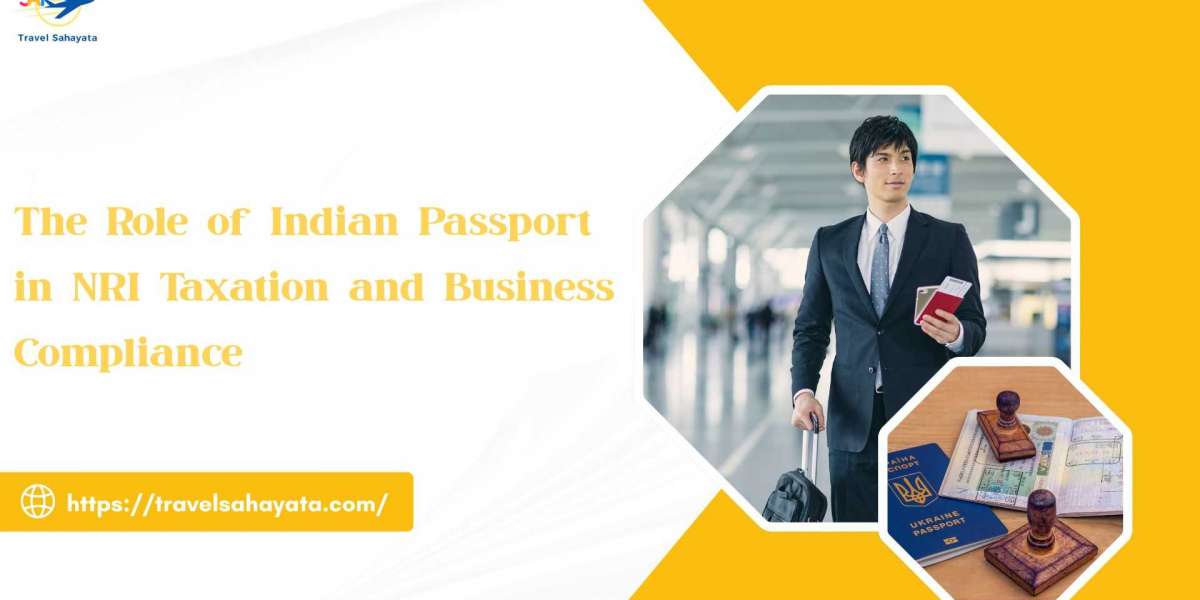For Non-Resident Indians (NRIs), the Indian passport is more than just a travel document—it's a critical part of legal, financial, and business identity. Whether you are a startup founder in the U.S., a freelancer in Europe, or a business consultant in the Middle East, your Indian passport plays a vital role in establishing your eligibility, compliance, and mobility. Especially when it comes to taxation and regulatory matters, the accuracy, validity, and accessibility of your Indian passport can have direct consequences.
In this blog, we’ll explore how the Indian passport intersects with tax laws, FEMA regulations, banking, and business compliance requirements for NRIs.
Why the Indian Passport Matters Beyond Travel
An Indian passport acts as proof of Indian citizenship and legal identity. For NRIs, this is crucial for:
- Applying for Overseas Citizenship of India (OCI) or surrender certificates
- Filing taxes and claiming Double Taxation Avoidance Agreements (DTAA)
- Proving identity for financial transactions
- Complying with banking laws under FEMA
- Managing property ownership and inheritance in India
Even a minor error—like a mismatched name or outdated passport—can cause delays or rejections in these areas, especially when time-sensitive business matters are involved.
Understanding FEMA: Foreign Exchange Management Act
The Foreign Exchange Management Act (FEMA) is an Indian law that governs foreign exchange, international investments, and cross-border financial transactions. Introduced in 1999, FEMA replaced the earlier Foreign Exchange Regulation Act (FERA), making the process more NRI-friendly.
Under FEMA, NRIs are allowed to:
- Invest in Indian companies and startups
- Own and manage property
- Send money to and from India (within regulatory limits)
- Maintain specific types of bank accounts (NRE/NRO)
However, these activities must be reported and conducted in compliance with FEMA norms. An expired or invalid Indian passport can raise red flags during compliance checks, audits, or cross-border banking.
Who Qualifies as an NRI?
A Non-Resident Indian (NRI) is defined as an Indian citizen who resides outside India for employment, business, or other purposes for more than 182 days in a financial year.
NRIs retain certain rights in India, including:
- Maintaining bank accounts
- Holding investments and properties
- Accessing consular services
For all these, a valid Indian passport remains a foundational document.
Difference Between NRO and NRE Accounts
Managing finances across borders is easier with specialized bank accounts available for NRIs. These include:
NRE (Non-Resident External) Account
- Funded with income earned abroad
- Repatriable (funds can be transferred back overseas freely)
- Tax-free in India
NRO (Non-Resident Ordinary) Account
- Holds income generated in India (rent, dividends, pensions)
- Not freely repatriable beyond $1 million per financial year without RBI approval
- Interest earned is taxable in India
Banks require Indian passport details and visa/residence proof to open or maintain these accounts. Inconsistent or expired documents can freeze or delay access—impacting business and personal cash flow.
Business Compliance for NRIs
Whether you’re running an Indian subsidiary, consulting firm, or managing offshore operations, your Indian passport plays a direct role in business compliance:
- Business registrations may require Indian identification
- Tax filings need accurate residency status
- Indian embassies or consulates often require passport details for verification in business-related legal procedures
- Opening a corporate bank account or remitting funds needs KYC, where your Indian passport is key
A mismatch between business registration records and passport details can lead to regulatory roadblocks and financial scrutiny.
Risks of Passport-Related Issues
Some common risks that can impact NRI taxation and business operations include:
- Expired passport delaying legal filings
- Lost passport complicating identity verification during audits
- Incorrect details (DOB, spelling, address) causing inconsistency in financial documentation
- Failure to surrender passport after acquiring foreign citizenship leading to fines under Indian law
These issues can jeopardize ongoing business activities, lead to tax penalties, and cause long-term legal complications.
Maintaining Compliance: Smart Practices
To stay on top of legal and financial compliance:
- Renew your Indian passport 6-8 months before expiration
- Keep multiple digital and physical copies of your passport and OCI documents
- Update all relevant business documents when passport details change
- Monitor FEMA updates regularly
- Use official portals for passport services, OCI applications, and legal formalities
Conclusion
An Indian passport is not just a personal identity card—it's a professional necessity for NRIs engaged in international business and tax matters. Its role in compliance, banking, and documentation cannot be overstated. Small oversights can lead to legal hassles, financial losses, and delays in business operations.
By staying vigilant, keeping your documentation up to date, and understanding the laws like FEMA and account types such as NRO/NRE, NRIs can operate with confidence. Treat your Indian passport as a dynamic asset—key to maintaining not just mobility, but credibility and business continuity abroad.
If you're an NRI dealing with cross-border taxation, real estate, or business transactions, make sure your passport is always valid, updated, and aligned with your legal status. It’s not just about travel—it’s about trust and compliance in the global landscape.




